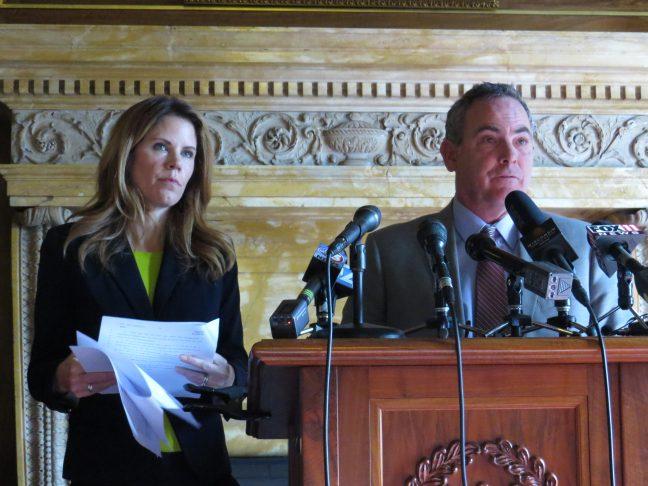In an effort to join the 28 states where using marijuana to treat debilitating illnesses is legal, Democratic legislators announced a medical marijuana proposal and statewide referendum bill.
The nonbinding referendum, supported by Sen. Jon Erpenbach, D-Middleton, and Rep. Chris Taylor, D-Madison, would ask constituents on the next ballot, “Should the state of Wisconsin allow individuals with debilitating medical conditions to use and safely access marijuana for medical purposes if those individuals have a written recommendation from a licensed Wisconsin physician?”
In the Monday news conference, Erpenbach said the goal of the referendum is to get a sense of what Wisconsinites want.
“The ‘Compassionate Cannabis Care Act,’ is a clear, clean, tight piece of legislation,” Erpenbach said.
Local physician David Olive, a stage four lung cancer patient, and Steve Acheson, an Iraq war veteran, both joined the legislators in supporting the act and referendum.
Olive said marijuana has helped ease symptoms from his cancer treatments, particularly related to nausea, in a way his prescribed medication hadn’t.
In the same vein, Acheson said marijuana aided him with his post-traumatic stress disorder symptoms when he was struggling to go back to school. He said he found it nearly impossible to function as a nontraditional student and focus on lectures while being on constant alert for an attack.
As his symptoms abated, Acheson said he was slowly able to replace every medication he took with a “natural, safe alternative.” While smoking marijuana to alleviate his medical condition, he was named student of the year at University of Wisconsin-Fox Valley in 2011.
“Medicinal cannabis allowed me to reach my full potential,” Acheson said.
Taylor said this bill is a byproduct and gold standard of similar legislation, and could help address Wisconsin’s opioid abuse epidemic by providing a less addictive alternative.
The legislators introduced the act last session, but neither chamber held a public hearing. This year they added the statewide referendum, which would have no legal effect, based on support from high-profile Republicans, they said in a statement.
Erpenbach and Taylor also submitted a letter to Gov. Scott Walker urging him to support the legislation based on his claim the issue should be left to the states.
“There is no reason our medical marijuana legislation should not be included, at a minimum vetted with a public hearing, for your Special Session on opiate abuse,” they said in the letter.


